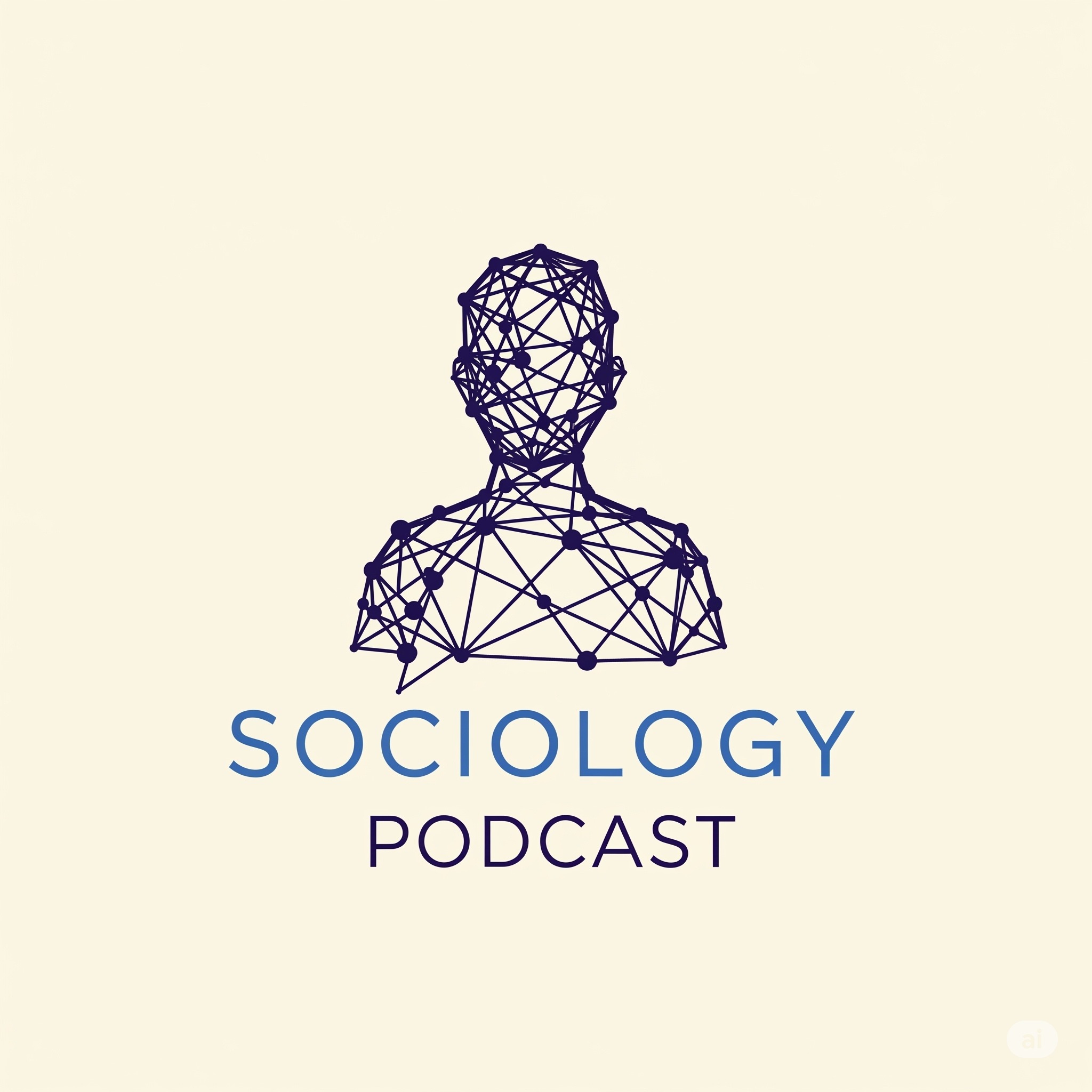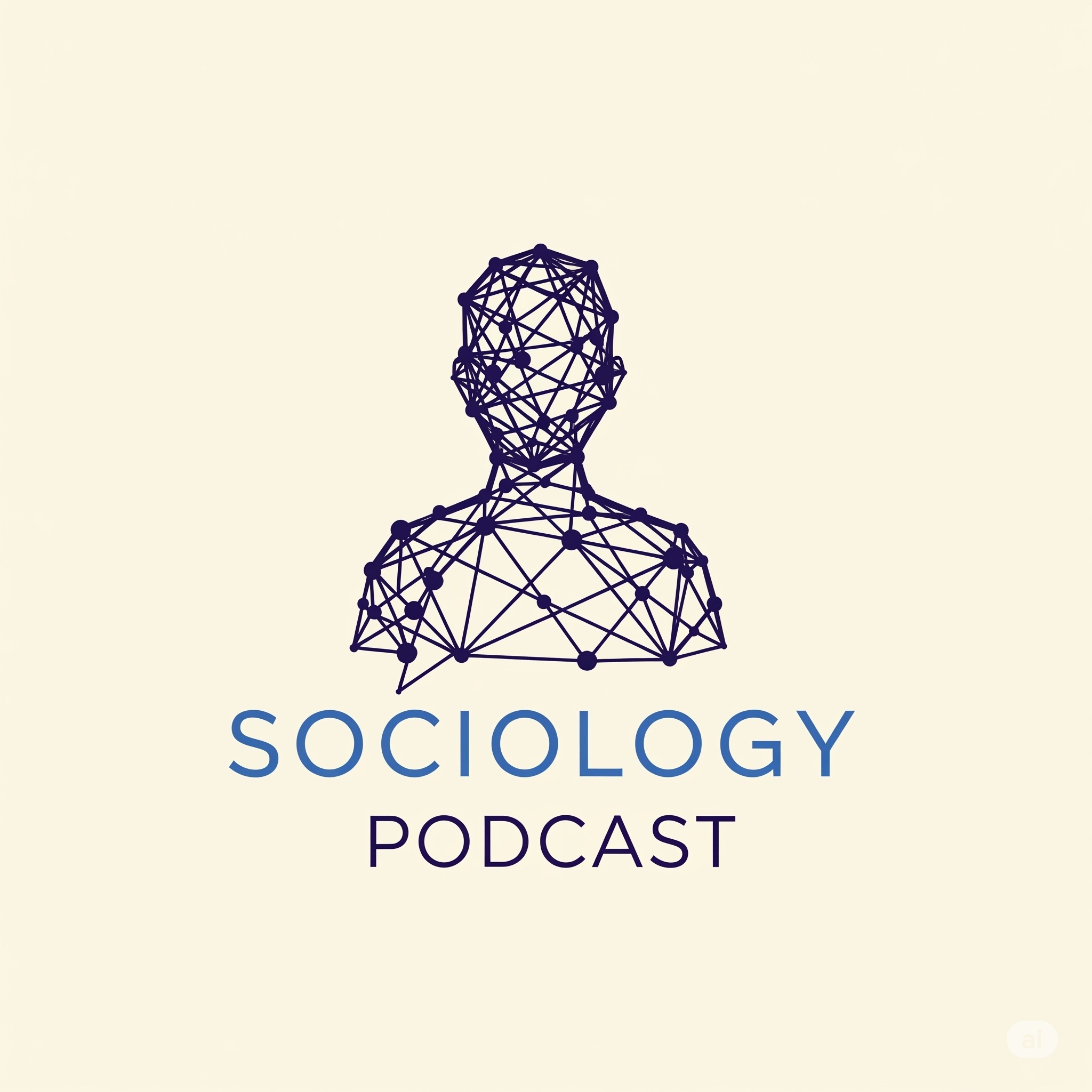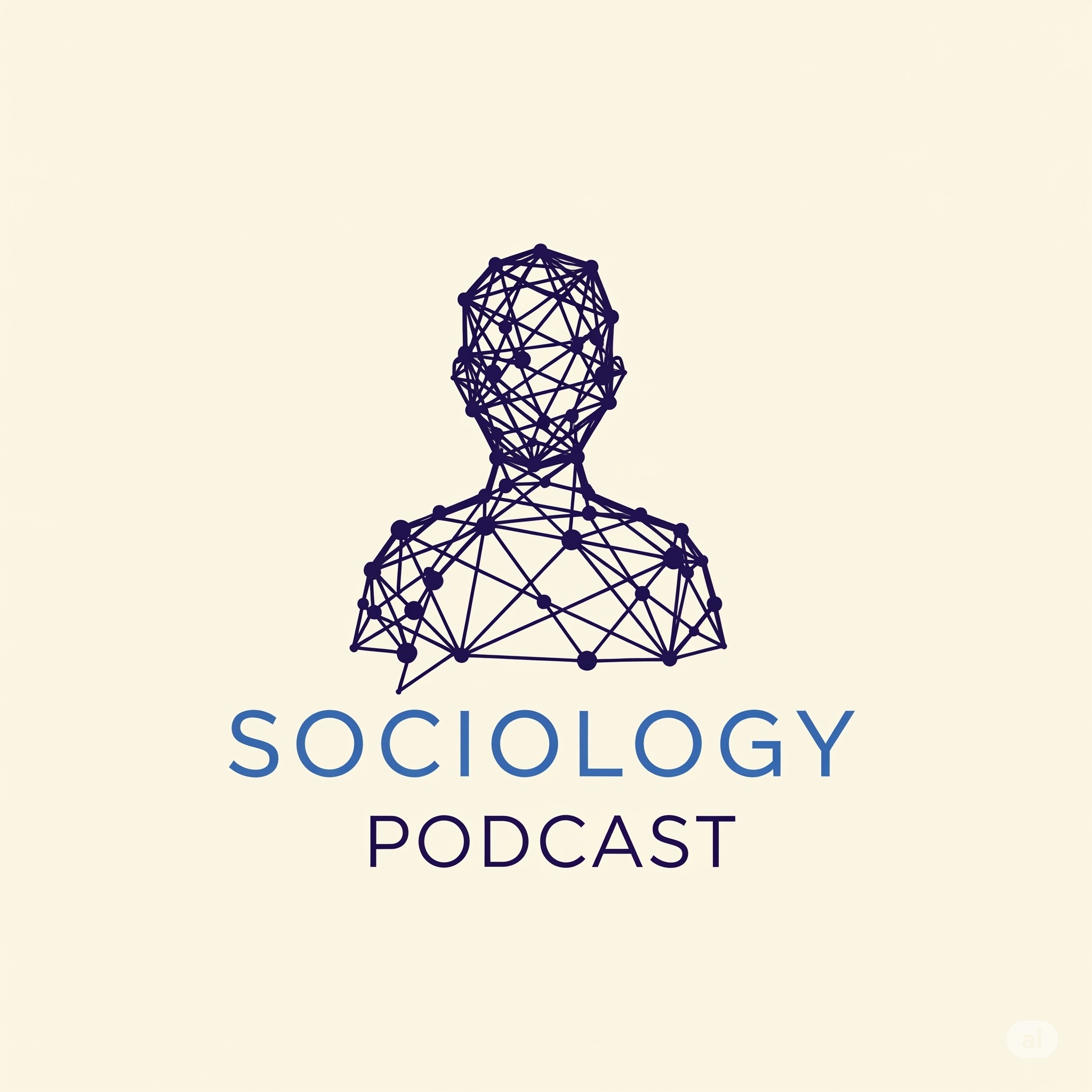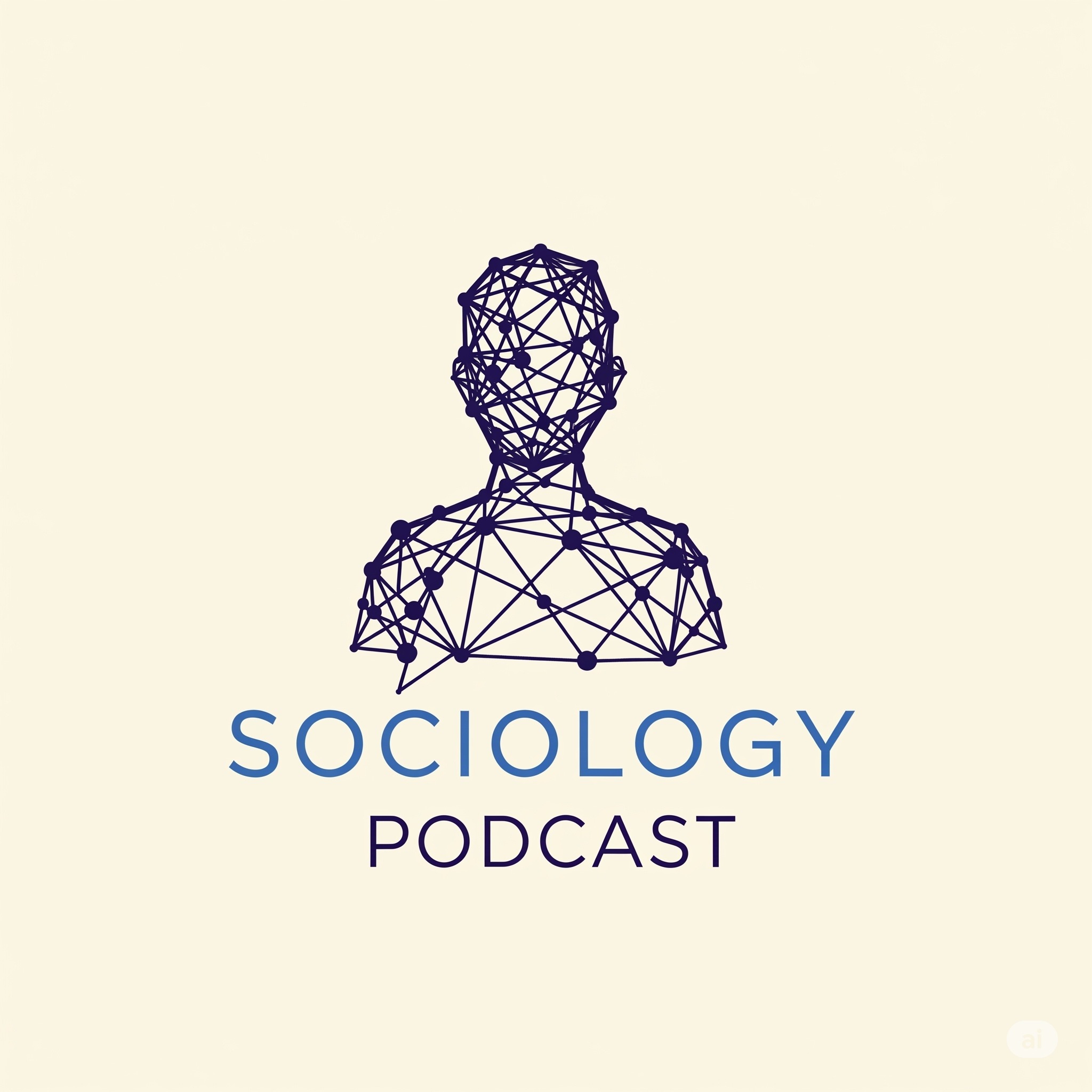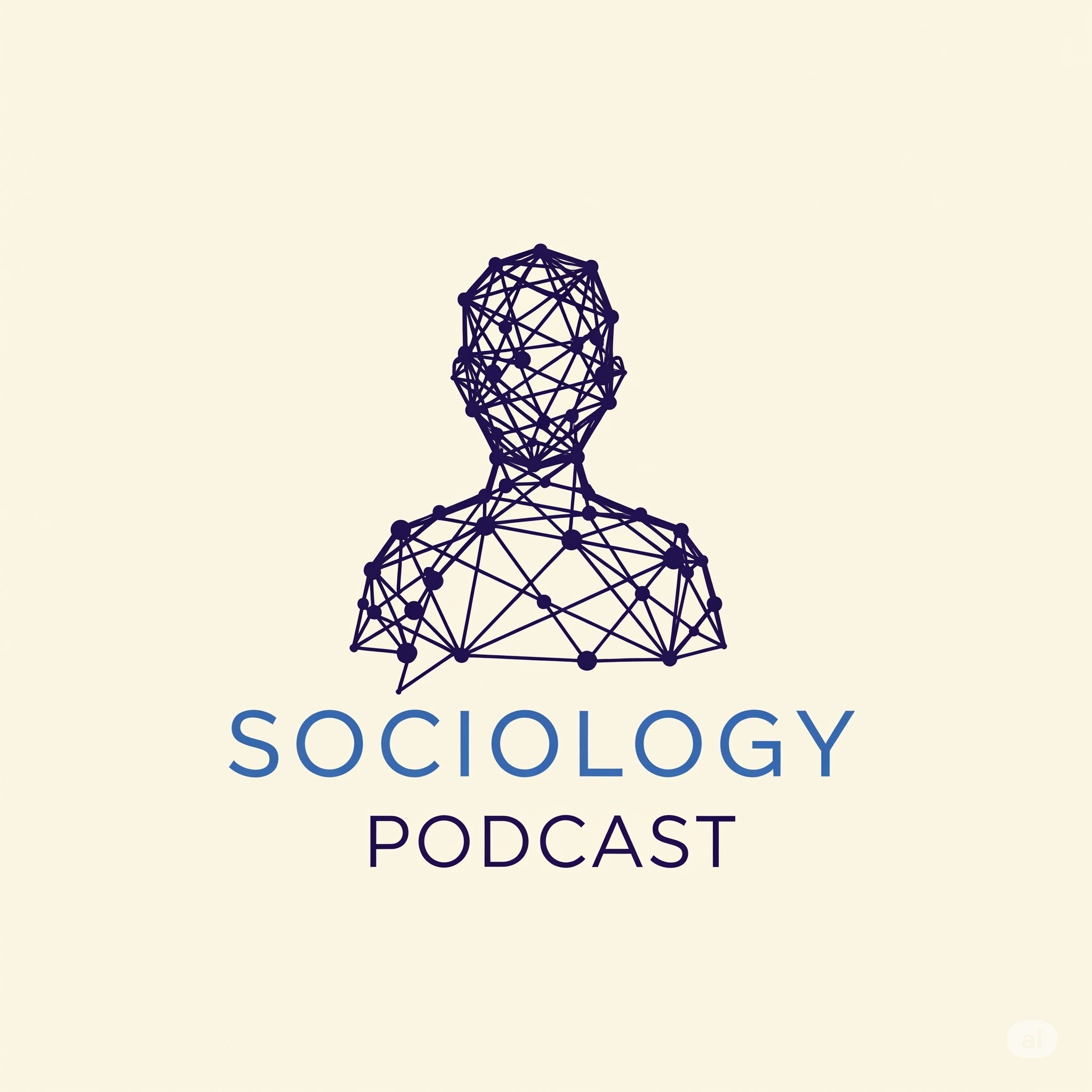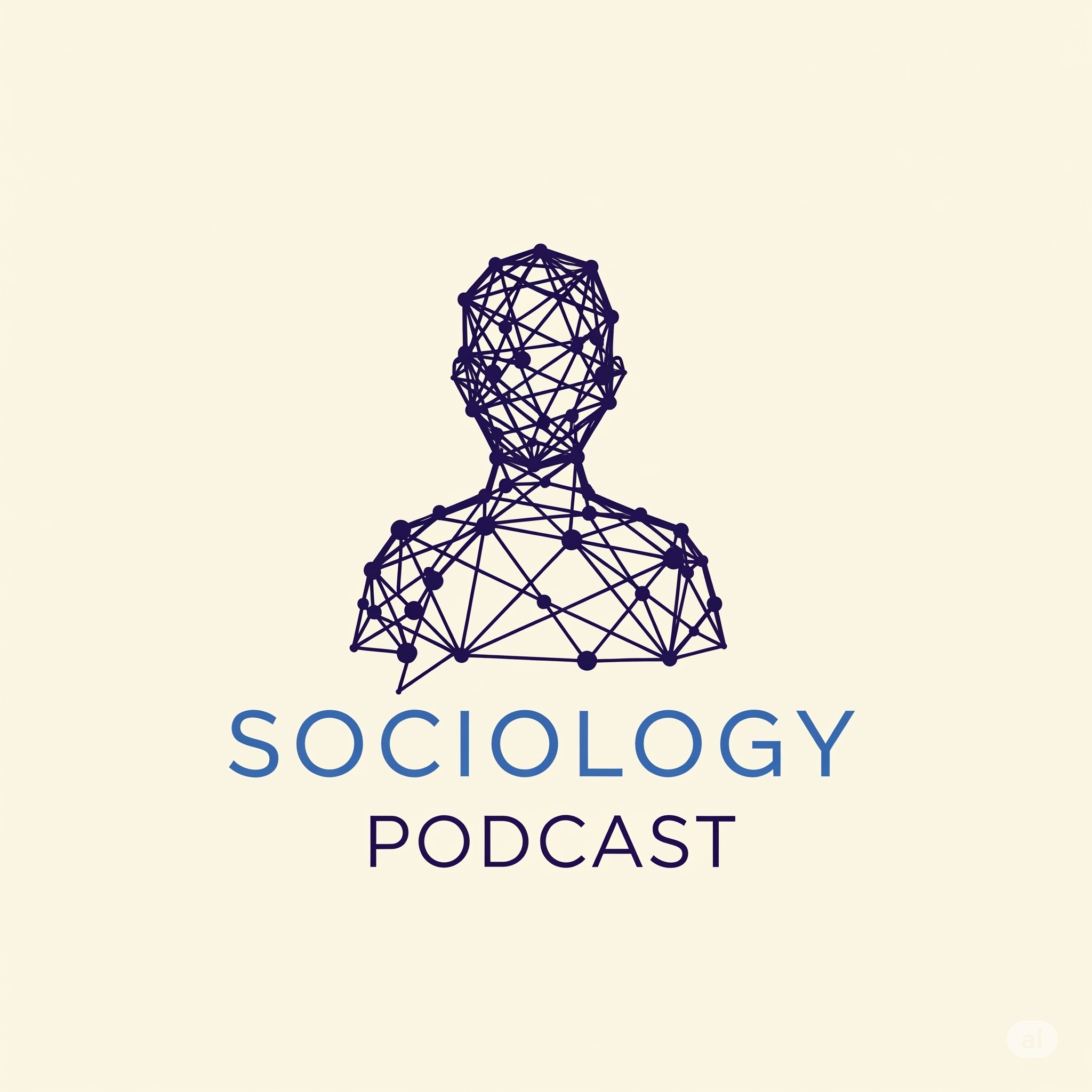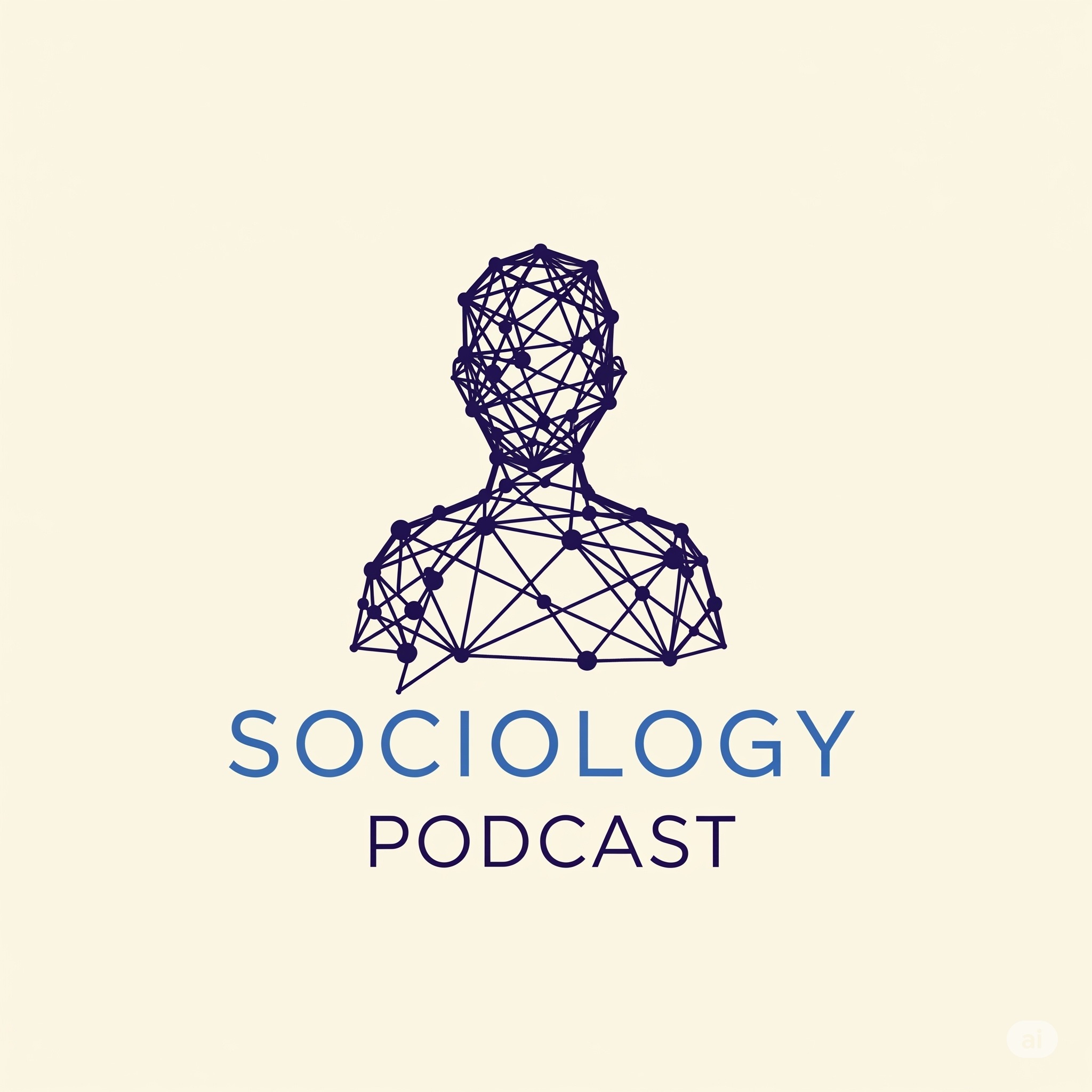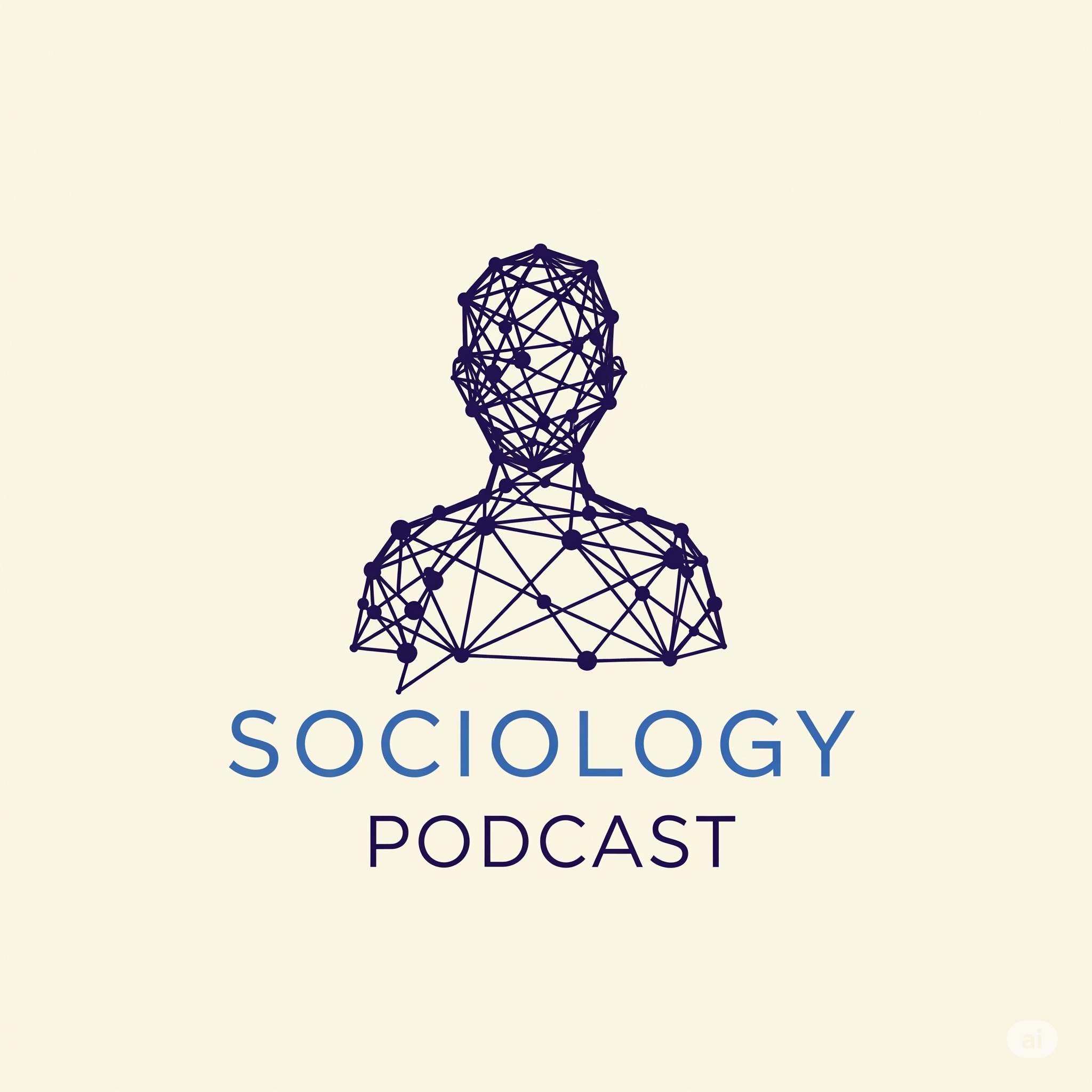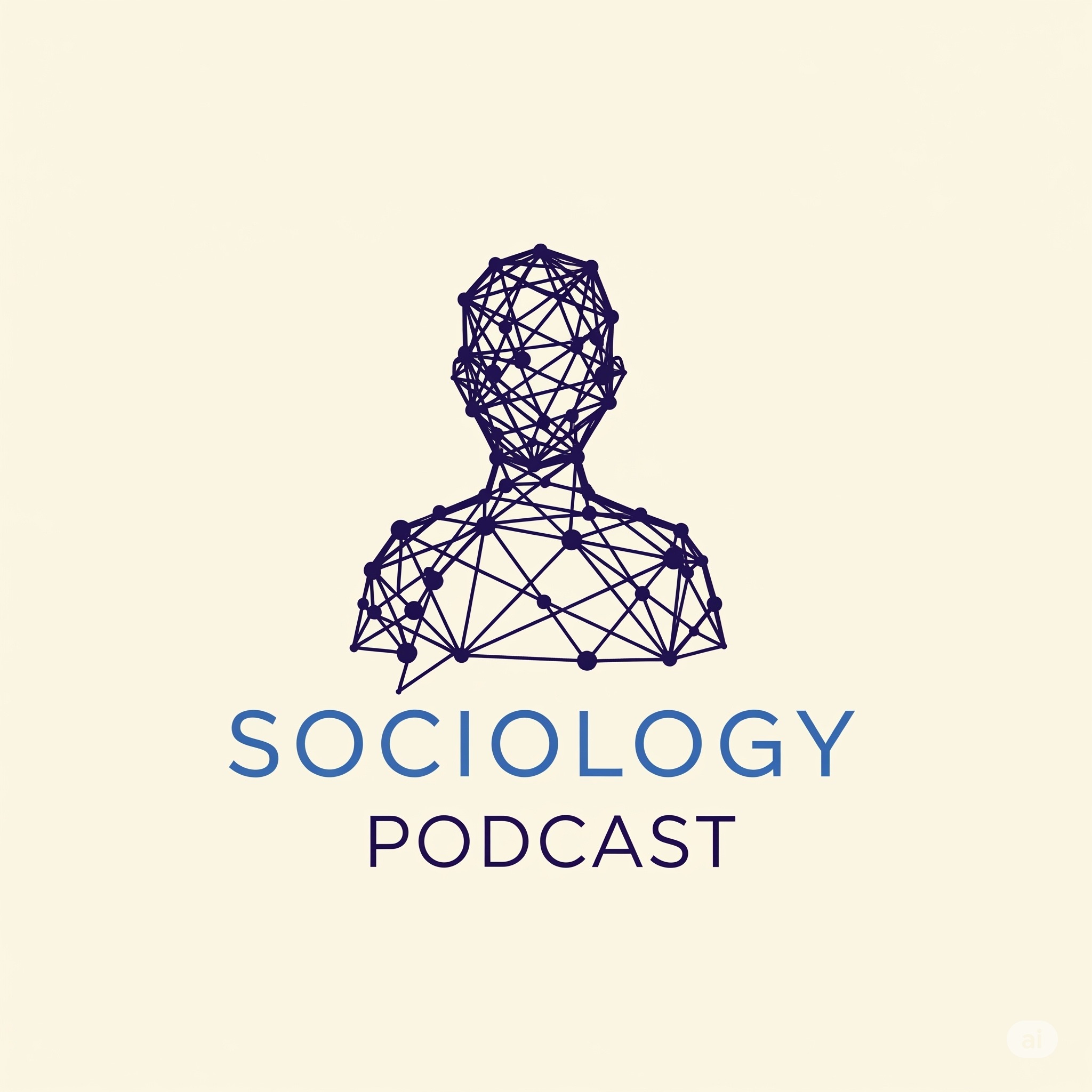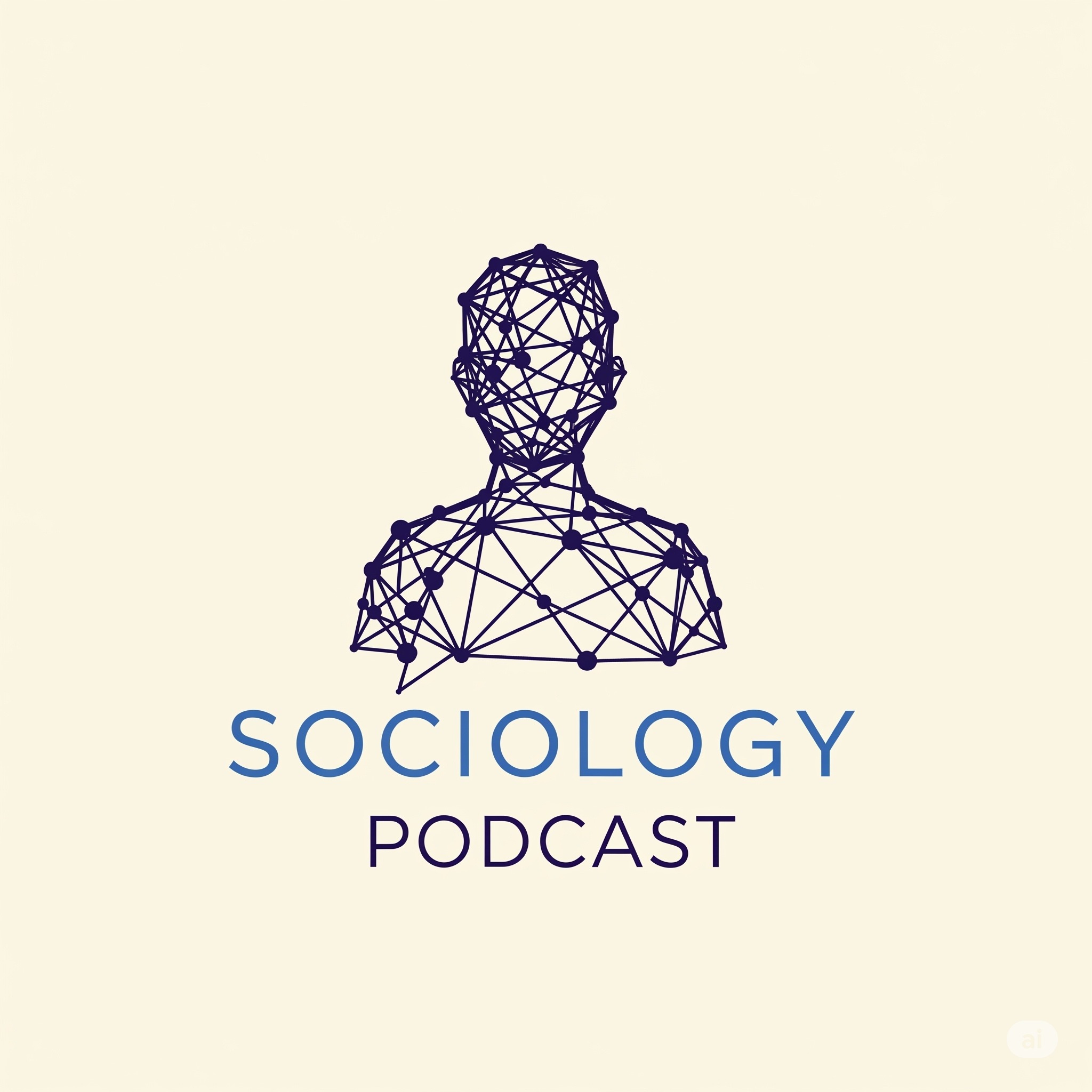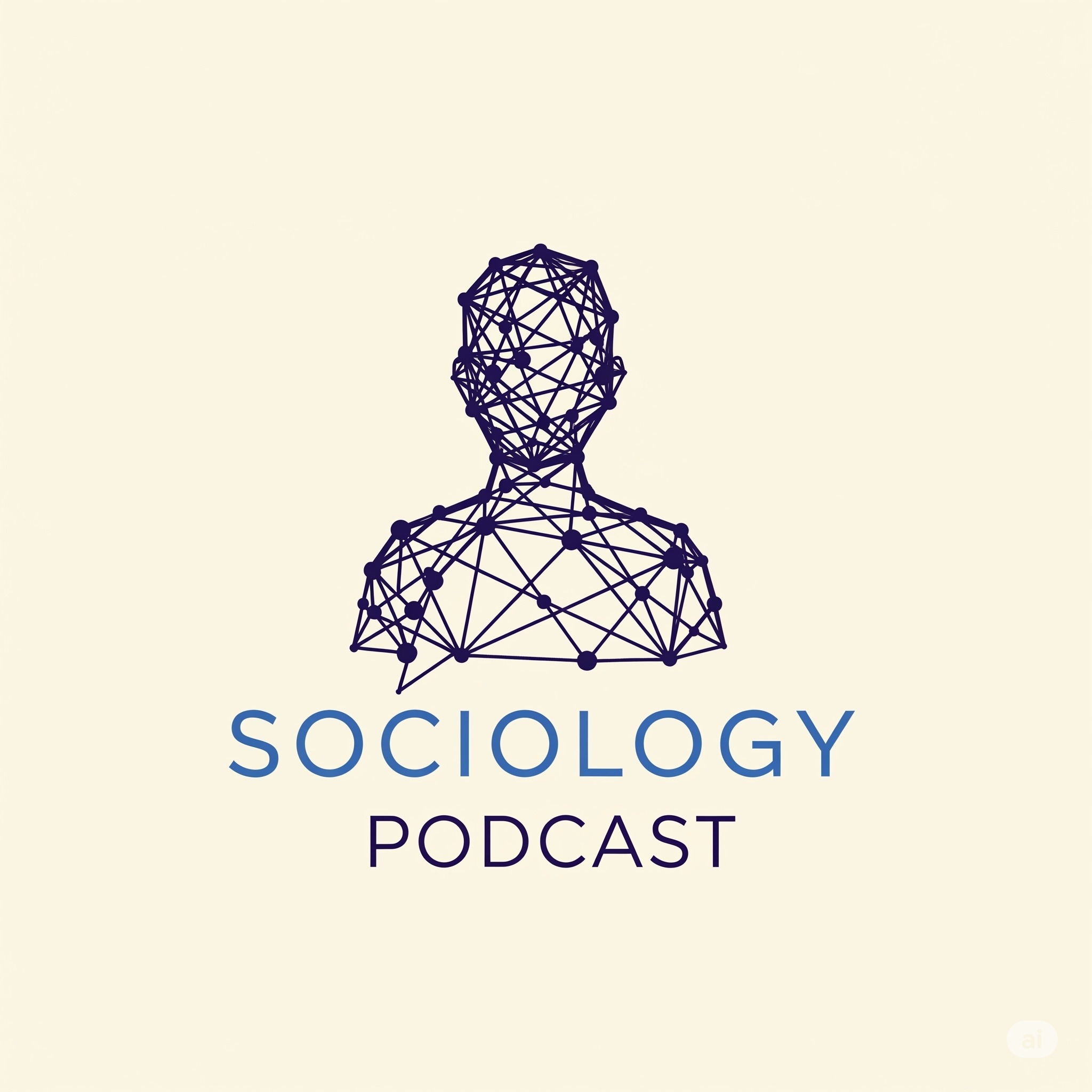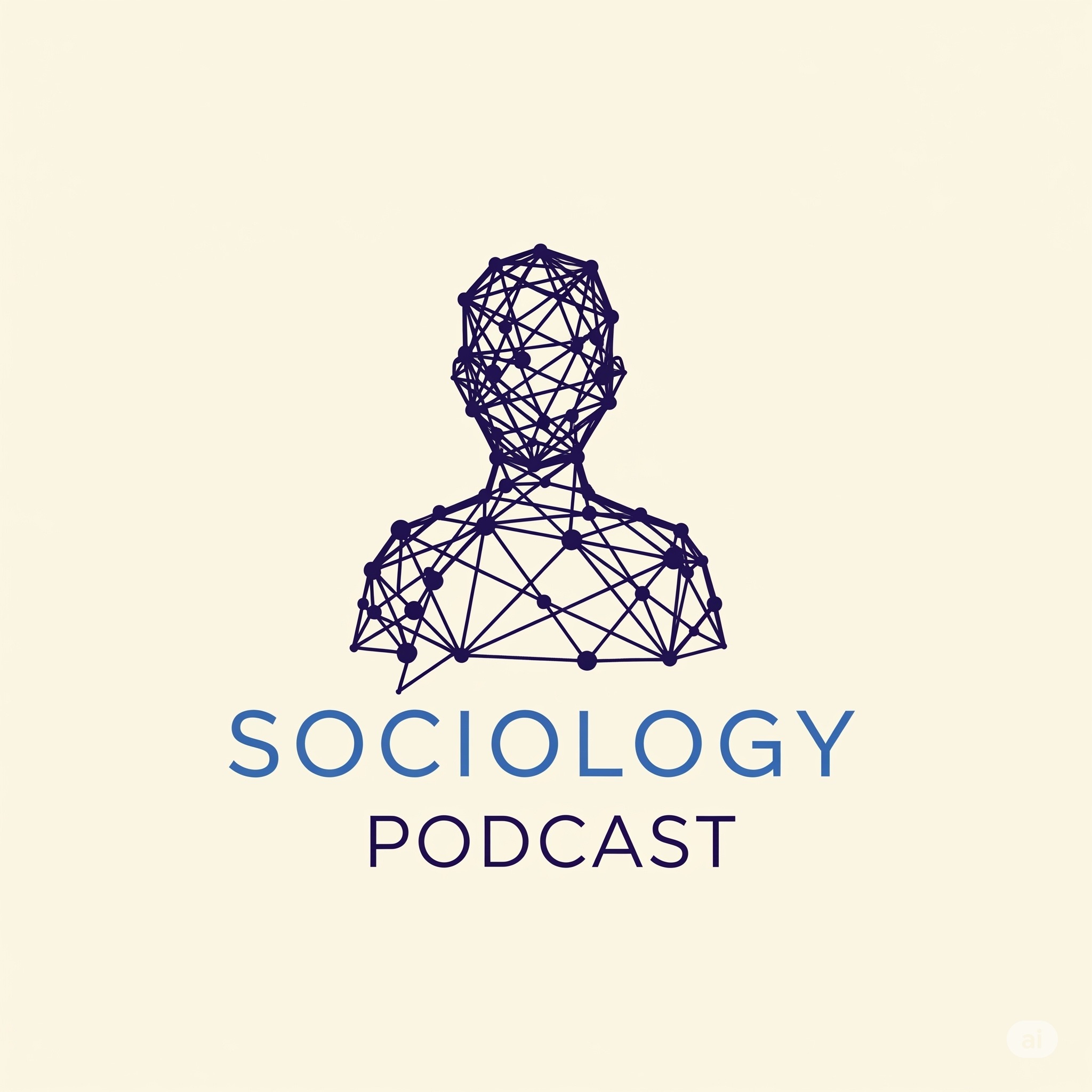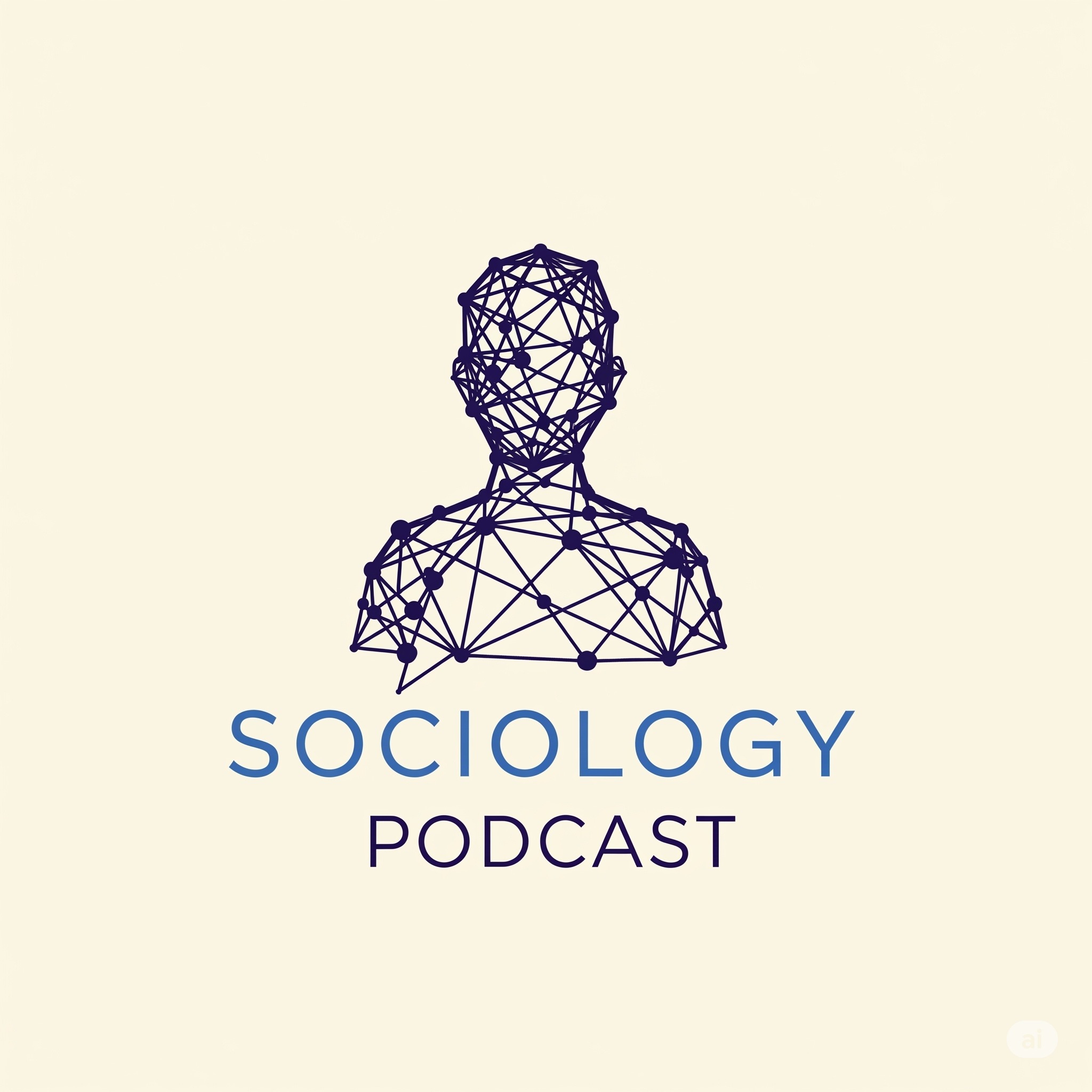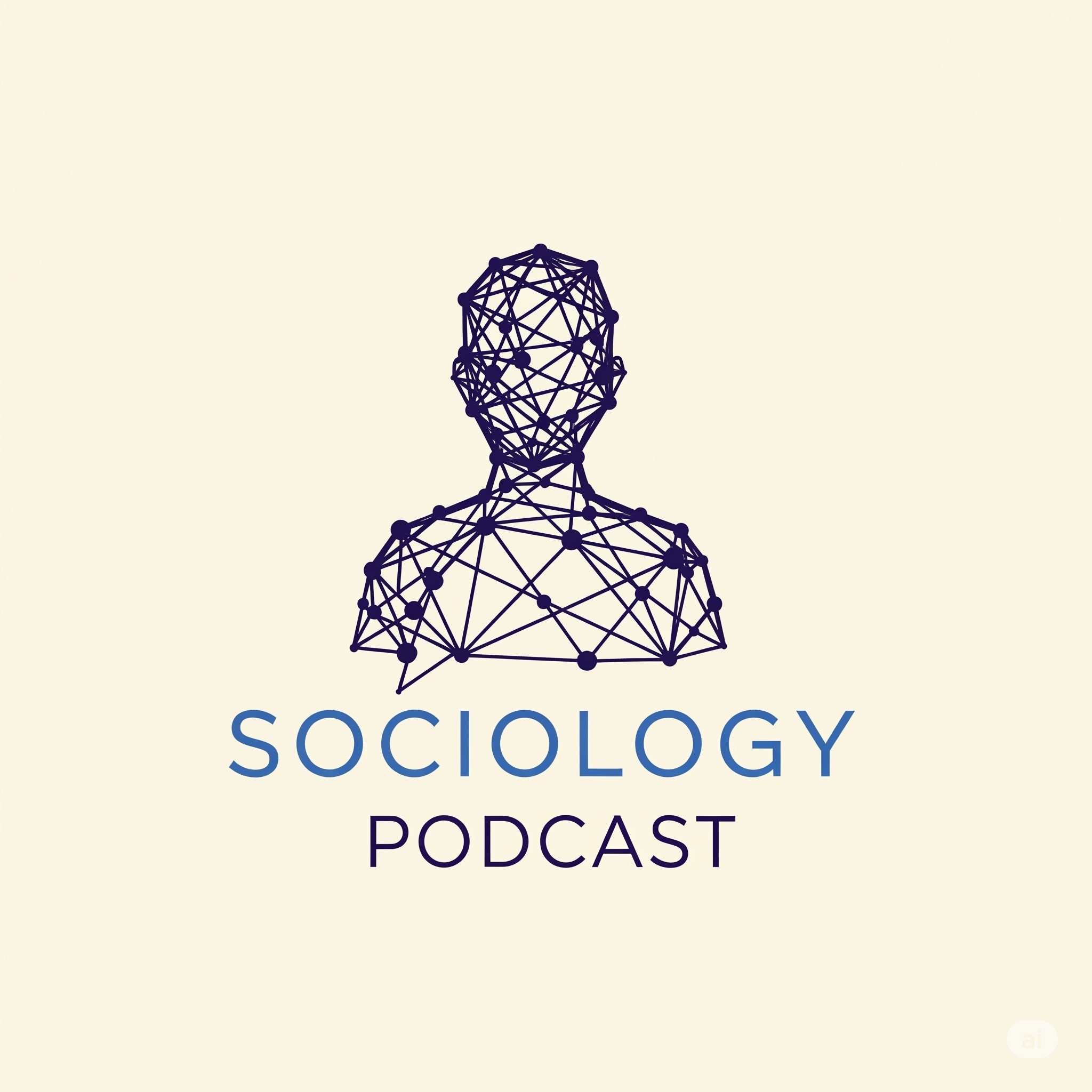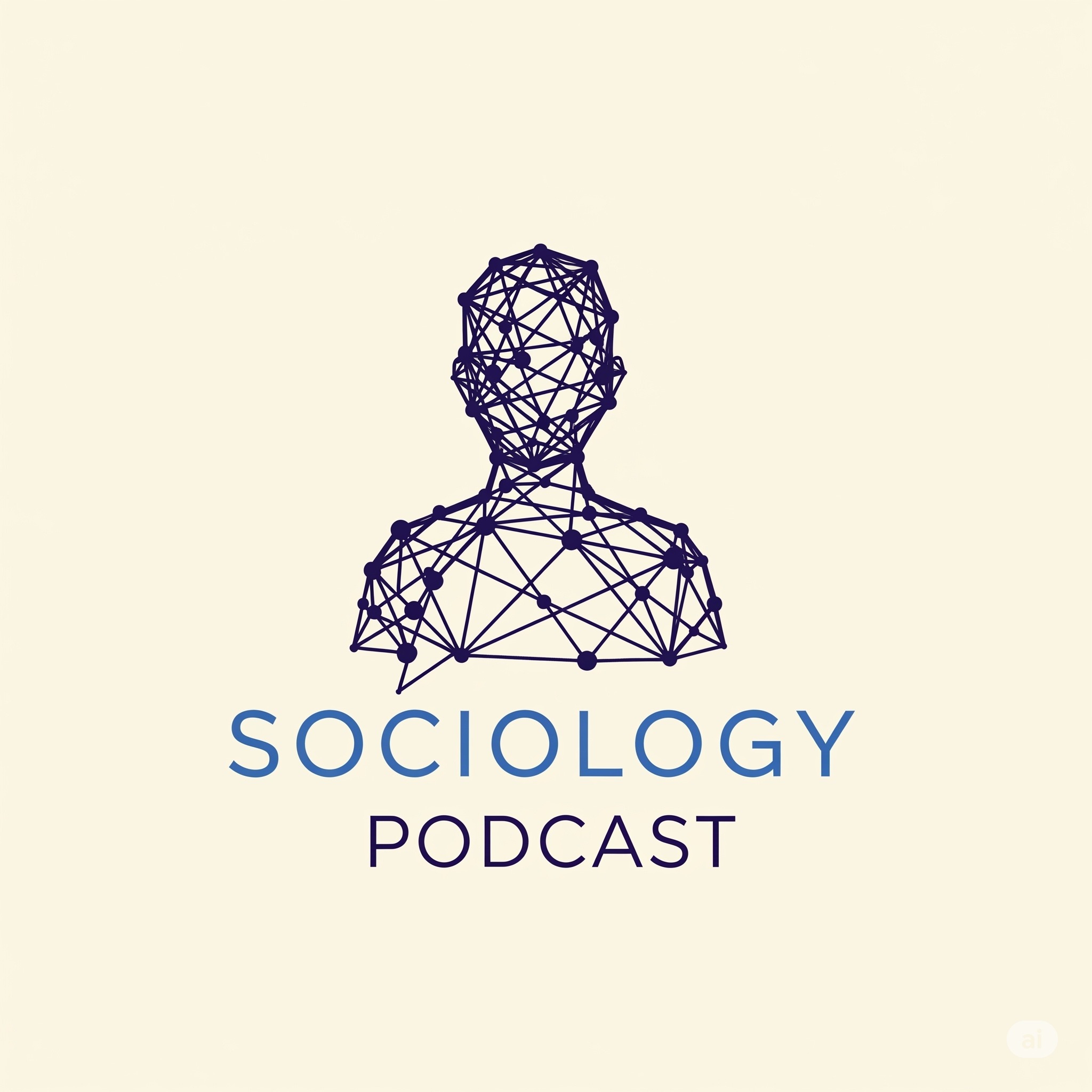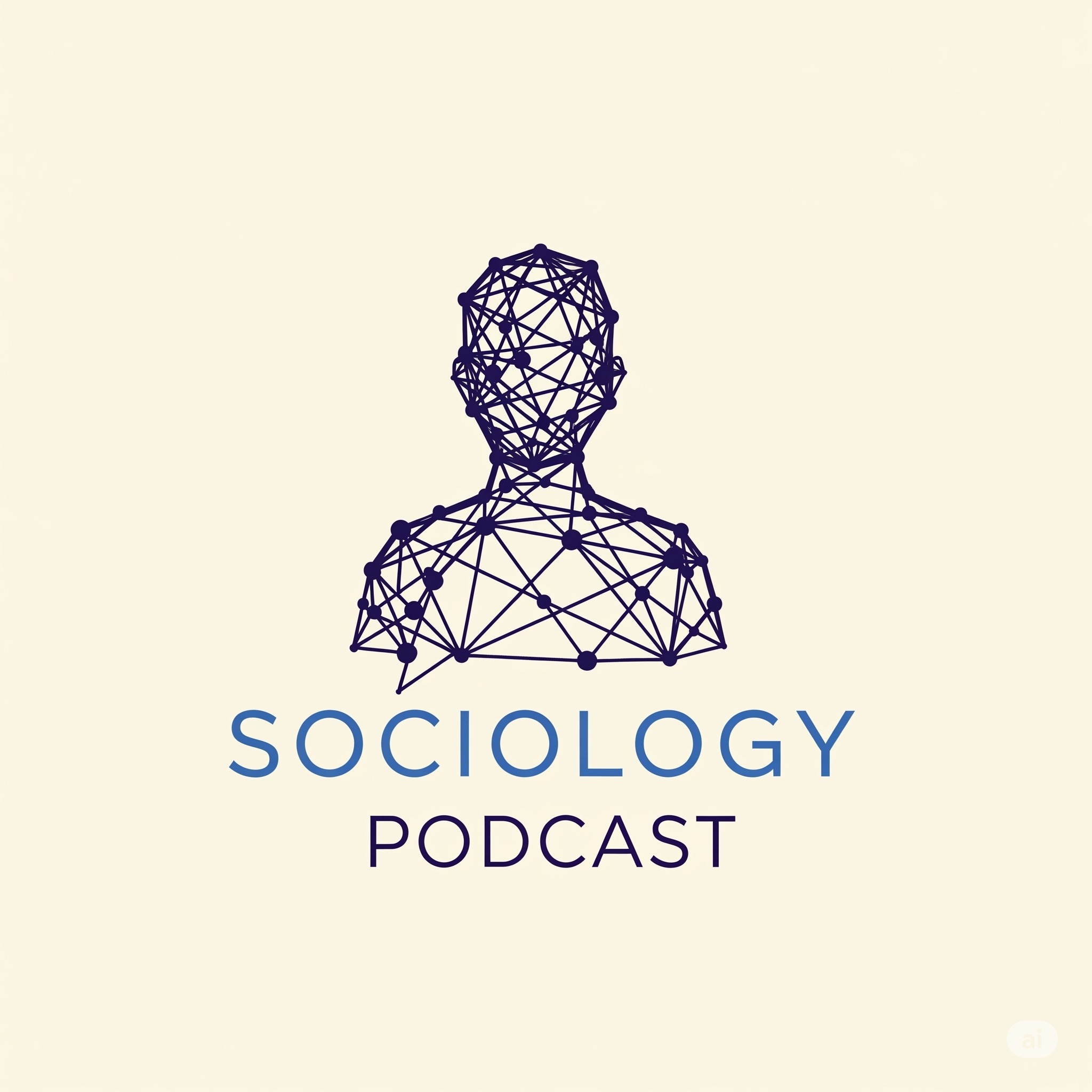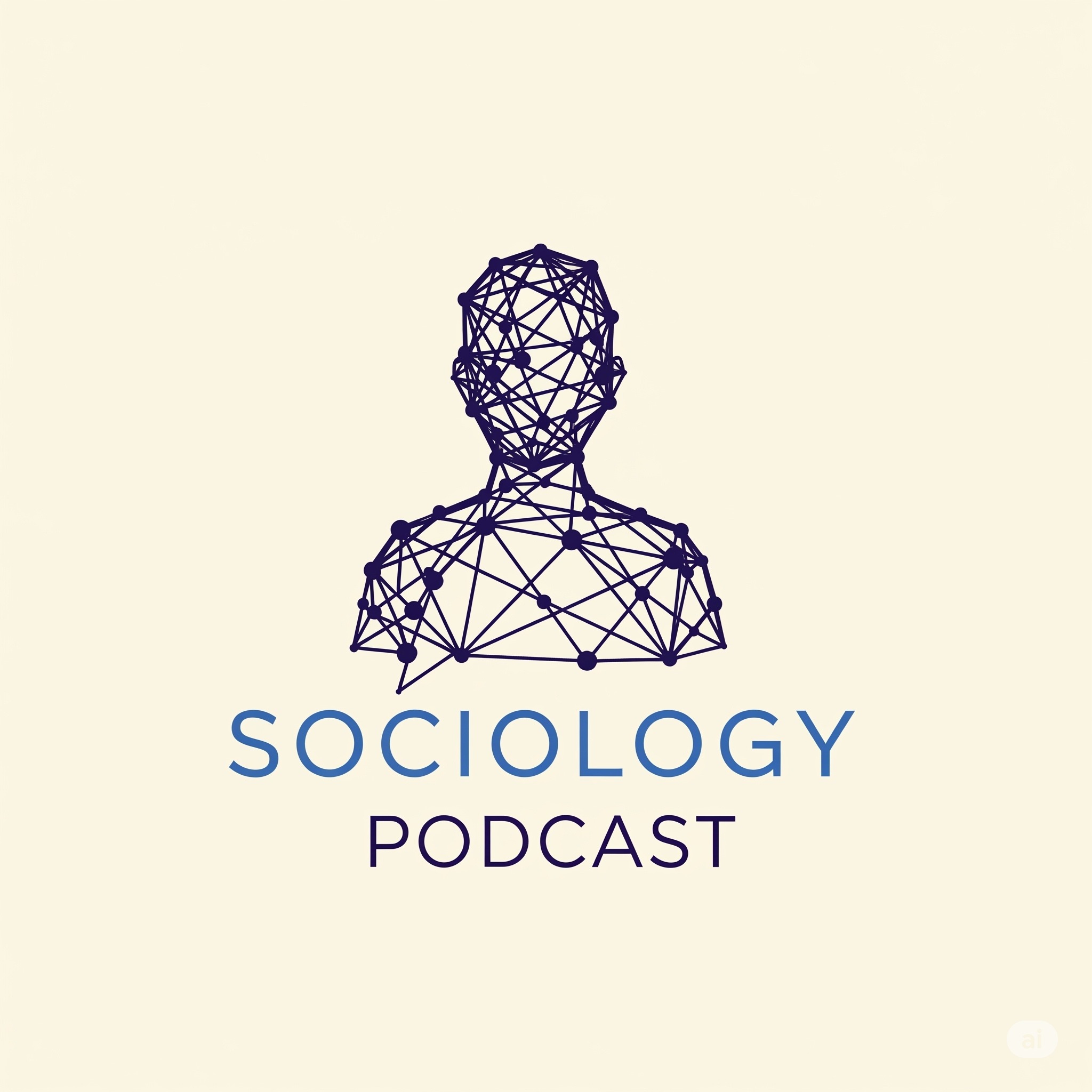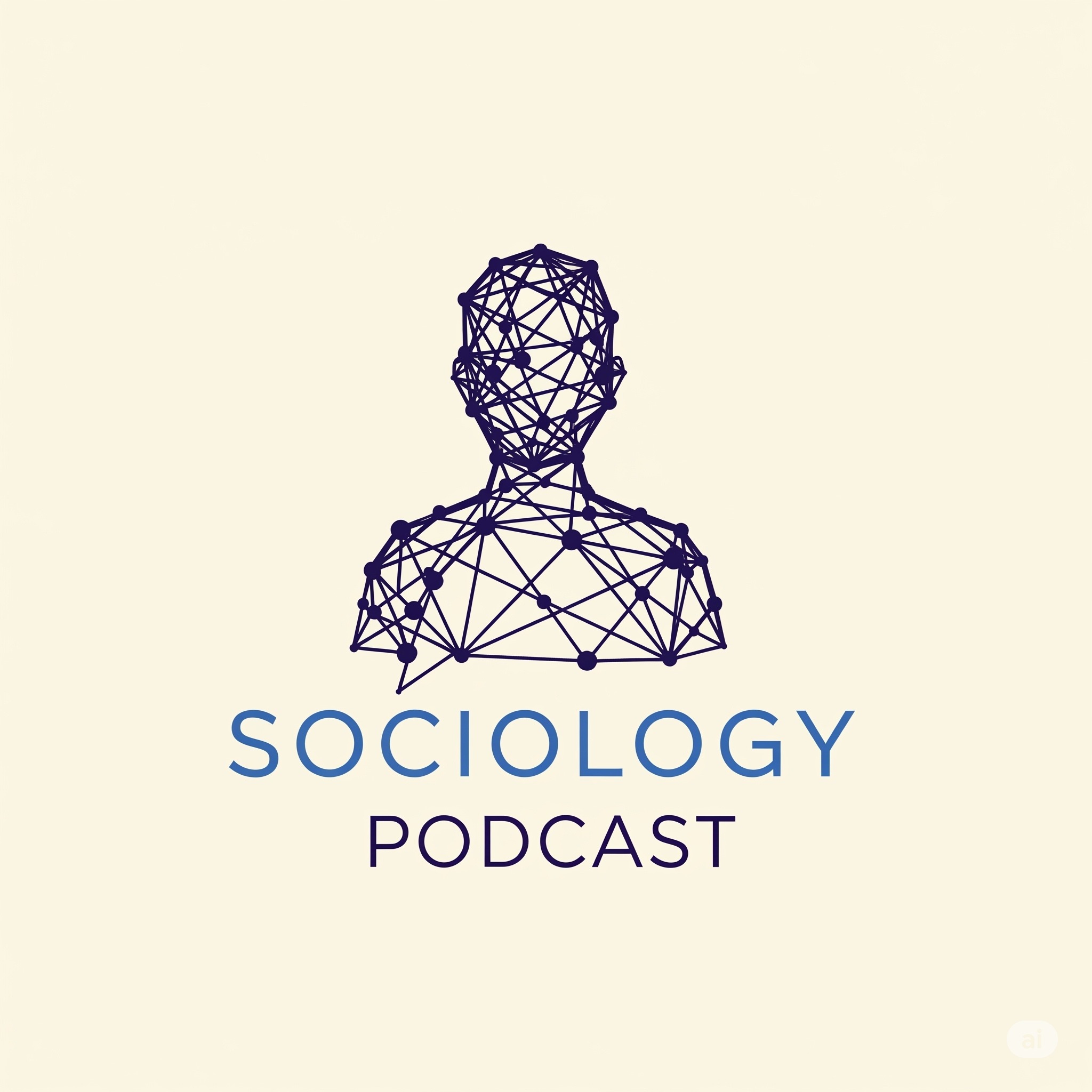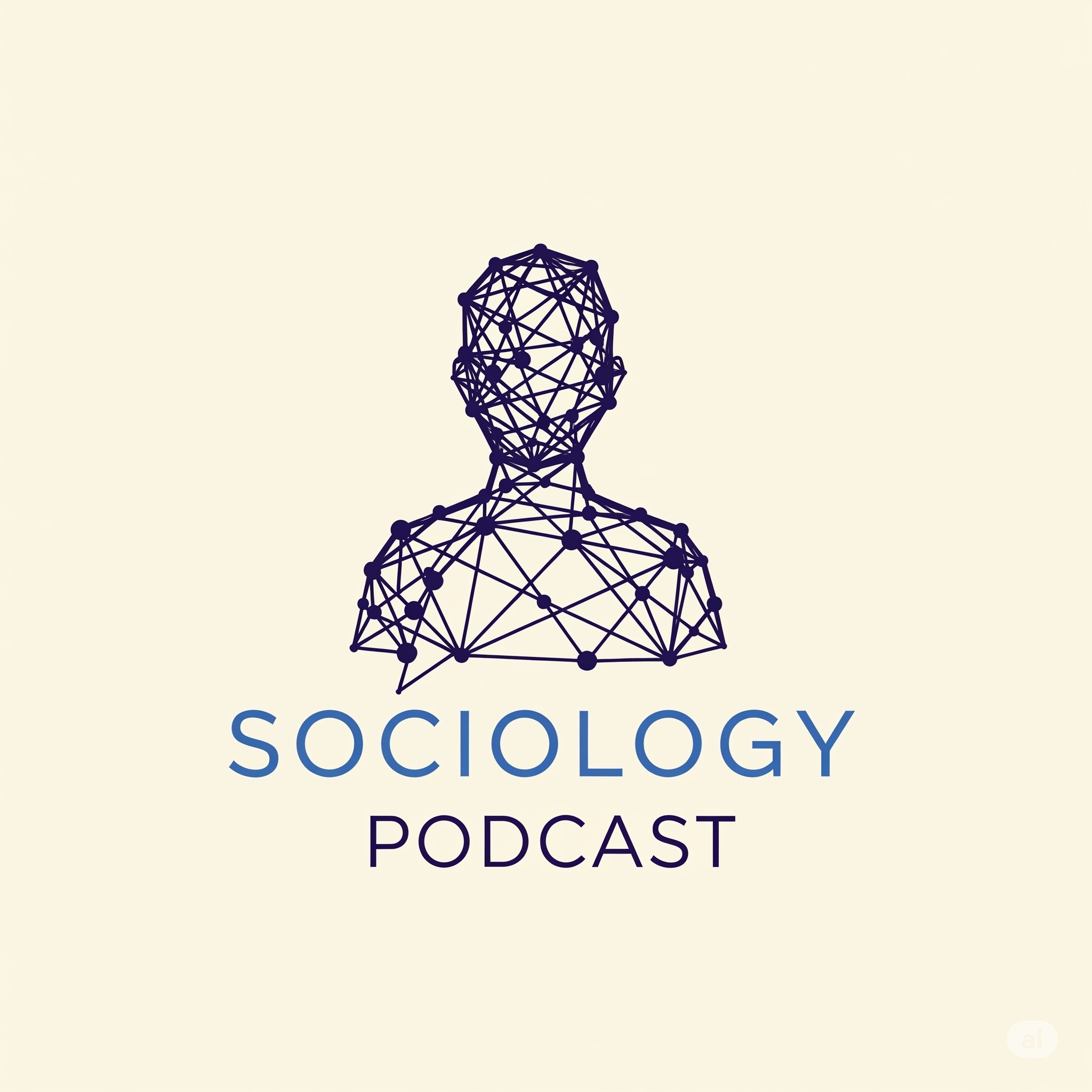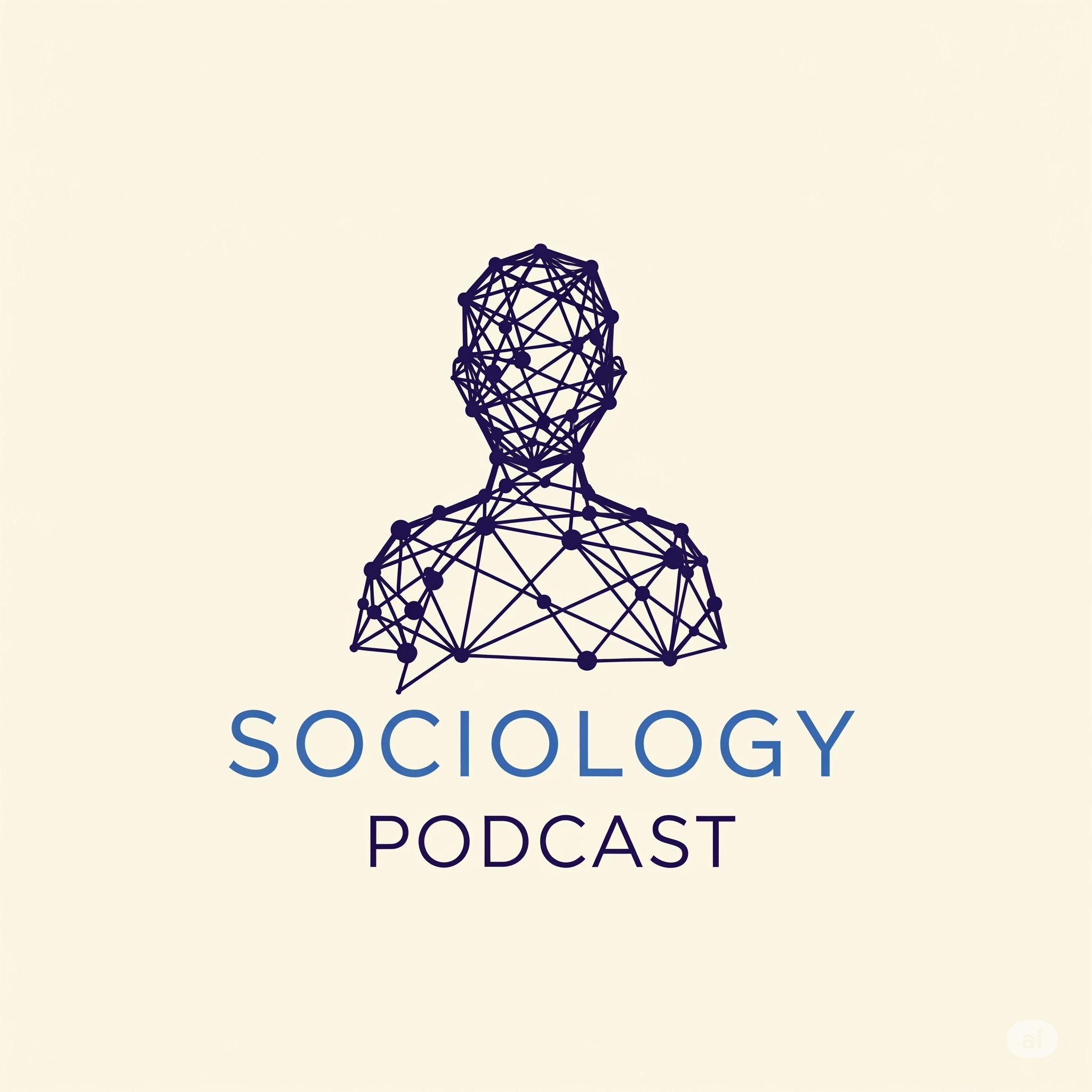Discover Sociology Podcast
Sociology Podcast

Sociology Podcast
Author: Sociology Podcast
Subscribed: 8Played: 12Subscribe
Share
© Blake Matthews
Description
A podcast discussing learned topics for A Level Sociology, covering a range of topics and exam support. Written by an experienced Sociology teacher and examiner for the AQA board.
Season one: A Level Sociology - Media
Season two: A Level Sociology - Families and Households
Season three: A Level Sociology - Education
Season four: A Level Sociology - Crime and Deviance
Season five: A Level Sociology - Research Methods
Season six: A Level Sociology - Theories of Society
40 Episodes
Reverse
This episode introduces two significant modern sociological perspectives: feminism and postmodernism. It explains that feminist theories share the core belief that society is patriarchal, leading to the oppression of women, and explores liberal, Marxist, and radical feminist approaches to challenging this inequality. The discussion then transitions to postmodernism, characterising it as a departure from traditional sociology that rejects universal truths and 'grand narratives' due to society's increased diversity and fragmentation. Finally, it highlights key postmodern concepts such as fluid identity and hyper-reality, where the lines between what is real and what is fictional have become blurred.
This episode introduces Max Weber's sociological approach and the emergence of symbolic interactionism. It explains Weber's focus on social action and his methodology of verstehen, or empathetic understanding, to grasp the meanings and motives behind human behaviour. Examples of Weber's work, such as 'The Protestant Ethic and the Spirit of Capitalism' and his concerns about bureaucracy and rationalisation, are provided. The discussion then transitions to symbolic interactionism, a micro-level theory that developed from Weber's ideas, highlighting its emphasis on symbols and constructed meanings in social interaction. Concepts like the 'looking-glass self' and the dramaturgical approach are presented to illustrate how individuals shape their self-perception and perform roles based on social interactions.
This episode introduces Karl Marx and Émile Durkheim, two foundational figures in sociology, outlining their distinct theoretical perspectives. Marx is presented as the originator of conflict theory, positing that society is shaped by competition for resources and the exploitation of the working class (proletariat) by the ruling class (bourgeoisie) under capitalism, ultimately predicting a revolutionary overthrow. Conversely, Durkheim established functionalism, viewing society as an integrated system where each component serves a purpose to maintain stability and harmony. His concepts include social facts, the study of social solidarity (mechanical and organic), and anomie, a state of normlessness linked to societal disarray. The text highlights how these theorists offer contrasting views on the fundamental nature of society, with Marx focusing on struggle and Durkheim on cohesion.
This episode explores the concept of secondary data in sociological research. It distinguishes secondary data from primary data, explaining that secondary data already exists and was collected by others. The discussion then focuses on two main types: official statistics and documents. For each type, the text outlines their strengths and limitations, addressing aspects like cost, representativeness, reliability, validity, and potential biases, thus providing a comprehensive overview of using pre-existing information in sociological studies.
This episode focuses primarily on unstructured interviews, explaining their nature as guided conversations designed to gain deep understanding of individual experiences. It outlines both the advantages, such as high validity and flexibility, and disadvantages, including low reliability and generalisability, of this method. Furthermore, the text briefly touches upon group interviews, or focus groups, as a variation, highlighting their benefit in generating diverse opinions while acknowledging potential drawbacks like dominant participants. The overall purpose is to educate listeners on these sociological tools and their practical implications.
This episode offers an overview of participant observation as a research method within sociology, distinguishing it from non-participant observation. It explains that participant observation involves researchers immersing themselves within a social group to gain a profound, insider understanding, aiming for verstehen or empathetic understanding. The text differentiates between overt observation, where the researcher's identity is known, and covert observation, where it is hidden, discussing the ethical implications of each. Furthermore, it details the strengths of this method, such as its high validity and flexibility, alongside its limitations, including issues with reliability, generalisability, ethical concerns, and potential researcher bias.
This episode provides an overview of social surveys as a primary research method in sociology. It explains that surveys are used to collect information from large groups, typically through structured questions that yield quantitative data. The text outlines two main types: questionnaires and structured interviews, detailing their respective benefits and drawbacks. Finally, it discusses the strengths of surveys, such as their reliability and generalisability, alongside their limitations, including potential issues with validity and the influence of the researcher.
This episode introduces fundamental concepts in sociological research. It begins by explaining the necessity of sampling in sociological studies, detailing both probability sampling (such as random, systematic, and stratified methods) and non-probability sampling (including quota, snowball, and purposive techniques), each designed to select a representative group from a larger population. Furthermore, the text clarifies two critical criteria for evaluating research: reliability, which refers to the consistency and replicability of research findings, and validity, which addresses the accuracy of the research in measuring what it intends to measure. The host emphasises that understanding these concepts is crucial for assessing any sociological inquiry.
This episode focuses on key aspects of sociological inquiry. It begins by distinguishing between quantitative methods, which gather numerical data through tools like questionnaires, structured interviews, and official statistics to identify patterns, and qualitative methods, which aim for rich, descriptive insights using unstructured interviews, participant and non-participant observation, and case studies. The source emphasises that all sociological research, regardless of method, must strictly adhere to ethical considerations. These include ensuring informed consent, maintaining confidentiality and anonymity, providing protection from harm, and carefully addressing instances of deception to safeguard participants' well-being.
This episode introduces foundational concepts in sociological research. It explores the core methodological debate between positivism and interpretivism, highlighting their differing approaches to studying society – whether it should be treated as a science with measurable data or understood through subjective human meanings. The source also discusses the role of values in research, contrasting the positivist ideal of value-free inquiry with the interpretivist view that values are inherent and can even be beneficial. Finally, it outlines the systematic stages of the sociological research process, from forming aims and hypotheses to data analysis and evaluation.
This episode gives a comprehensive overview of sociological perspectives on crime control, punishment, and the penal system. An audio podcast explores various crime prevention strategies, including situational, environmental, and social/community approaches, linking them to different realist theories such as Right Realism and Left Realism. Additionally, the podcast discusses the functions of punishment from the viewpoints of Functionalists like Durkheim, Marxists, and Michel Foucault, highlighting the evolution from retributive to restitutive justice and the shift towards disciplinary power and surveillance. The second, unnamed source appears to be a video resource that further elaborates on realist theories and their practical applications in crime control and prevention, complementing the podcast's theoretical discussions.
This episode gives an overview of victimology, a field dedicated to studying crime victims. They explain that victimology has evolved from a historically overlooked area to a crucial component of criminology, relying heavily on victim surveys like the Crime Survey for England and Wales to capture unreported crimes. The texts highlight two primary sociological approaches: Positivist Victimology, which focuses on identifying risk factors and patterns among victims, often considering demographic information, and Critical Victimology, a more radical perspective that examines how power, social inequality, and state actions define and create victims, including those of corporate or state-sponsored crimes. Both sources underscore the shift in focus from solely the offender to understanding the victim's experience and the broader societal forces at play.
This episode explores how media representations significantly distort public perceptions of crime. It highlights that media often over-represents violent offences while under-reporting white-collar and corporate crimes, leading to an exaggerated sense of fear. The source further explains Stanley Cohen's concept of moral panics, detailing how sensationalised media reporting can amplify minor incidents into widespread societal anxieties, contributing to a cycle of deviance amplification. Finally, it discusses the complex and largely indirect relationship between media and the actual causation of crime, emphasising the media's primary role in shaping public opinion and fostering moral panics.
This episode introduces the sociological study of crime and deviance in a global context. It explains how globalisation has facilitated new forms of transnational criminal activity, such as drug trafficking and cybercrime, which are difficult for individual nations to police. The sources then explore "green crime," differentiating between traditional legal definitions and a more expansive "green criminology" that considers any environmental harm a crime, regardless of legality. Finally, the text addresses state crimes and human rights violations, highlighting how a human rights framework allows for the condemnation of state actions as criminal, even when they are not illegal under a state's domestic laws, with reference to Stanley Cohen's work on state neutralisation techniques.
An A Level Sociology podcast episode, discusses the complex relationship between ethnicity and crime, particularly focusing on the overrepresentation of certain ethnic minority groups, like Black individuals, within the criminal justice system. It explores various sociological theories, including Left Realism's perspective on relative deprivation and marginalisation, and Labelling Theory, exemplified by Stuart Hall's work on moral panics and the creation of the "Black mugger" stereotype. Furthermore, the source highlights the impact of institutional racism within law enforcement, drawing on findings like the Macpherson Report, and touches upon the underrepresentation of some Asian groups, attributing it to strong community control. Ultimately, it aims to explain the social and systemic factors influencing crime statistics rather than inherent criminality.
This A Level Sociology podcast episode, examines the significant gender disparity in criminal activity. It explores various sociological theories attempting to explain why men commit substantially more crime than women. Key explanations discussed include the chivalry thesis, which suggests the criminal justice system may treat women more leniently, and Functionalist Sex Role Theory, positing that differing gender socialisation influences criminal propensity. The podcast also highlights control theory, arguing that women face greater societal restrictions limiting their opportunities for crime, and the liberation thesis, which proposes that increased female equality may correlate with rising female crime rates.
This episode offers an overview of Realist theories of crime within sociology, specifically contrasting Right Realism and Left Realism. Right Realism attributes crime to individual factors such as biological predispositions, inadequate socialisation within the family, and rational choices made by offenders, advocating for punitive measures like zero-tolerance policing and the Broken Windows theory. Conversely, Left Realism acknowledges the reality of crime but critiques the harshness of Right Realism, instead focusing on societal causes like relative deprivation, marginalisation, and the formation of subcultures as responses. Left Realists propose solutions that involve both effective community policing and addressing social inequalities that contribute to crime. Both perspectives, despite their differences, are presented as practical approaches to understanding and tackling crime.
The aim of this episode is to introduce Labelling Theory, a core concept in sociological understanding of crime and deviance. They explain that this perspective, championed by thinkers like Howard Becker and Edwin Lemert, argues that crime is not an inherent quality of an act but rather a social construct, determined by how society, particularly those in power, applies labels. The sources detail the significant consequences of labelling, including the formation of a master status, self-fulfilling prophecies, and deviancy amplification, illustrating how societal reaction can paradoxically increase criminal behaviour. Ultimately, they present Labelling Theory as a contrast to structural theories of crime, emphasising the role of social interaction and power dynamics in defining and perpetuating deviance.
This episode offers an overview of Marxist and Neo-Marxist theories of crime, presenting them as conflict perspectives within sociology. They explain that traditional Marxism views crime as an inherent outcome of the capitalist system, which fosters inequality and exploitation, arguing that the law and criminal justice system primarily serve the interests of the ruling class. Furthermore, the sources introduce Neo-Marxism, or Critical Criminology, which expands upon traditional Marxist ideas by integrating concepts like labelling theory to provide a more nuanced understanding of deviance. This approach emphasises considering the broader capitalist context, individual motivations, and societal reactions to criminal acts, highlighting how both theories ultimately see crime as deeply connected to class struggle and power dynamics in society.
This episode looks to explore subcultural theories in sociology, explaining why groups, particularly young people, engage in crime and deviance. They build upon earlier ideas of individual strain by focusing on collective responses to a lack of legitimate opportunities. Albert Cohen's theory of status frustration highlights how working-class boys, failing in mainstream systems, form delinquent subcultures that invert societal values to gain status. Following this, Cloward and Ohlin expand on these ideas by identifying three distinct types of subcultures—criminal, conflict, and retreatist—positing that the specific form of subculture is dependent on the illegitimate opportunities present in a given area. Together, these theories illustrate how group formation and shared values contribute to deviant behaviour when conventional paths to success are blocked.
Comments
 United States
United States

